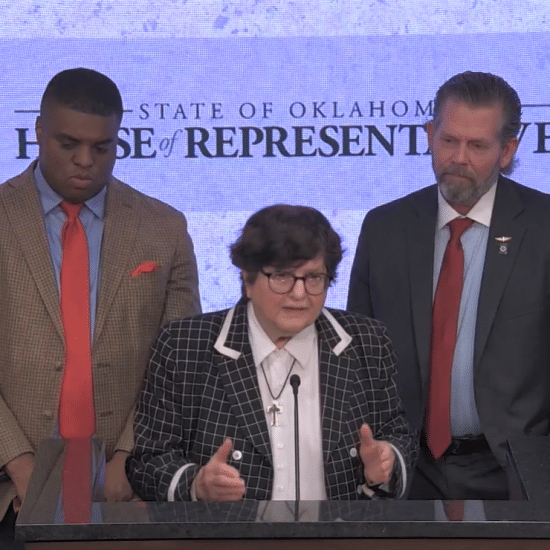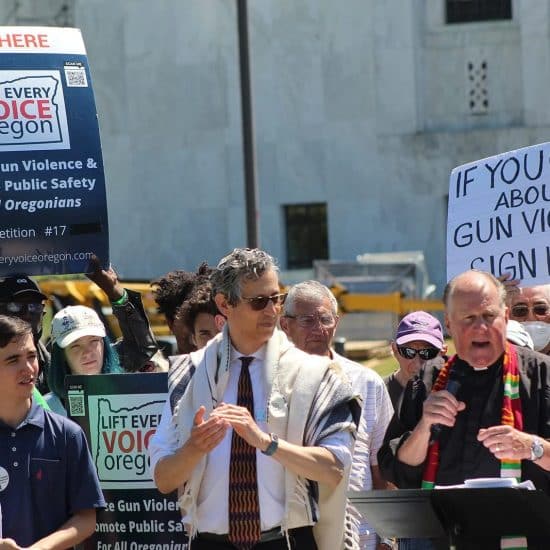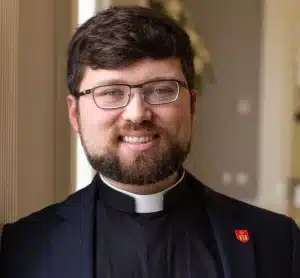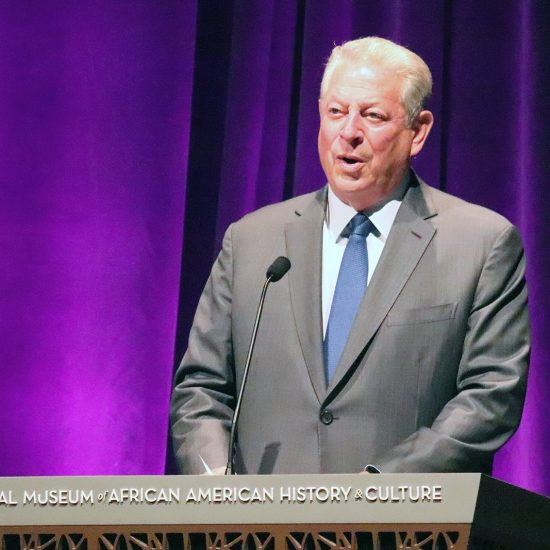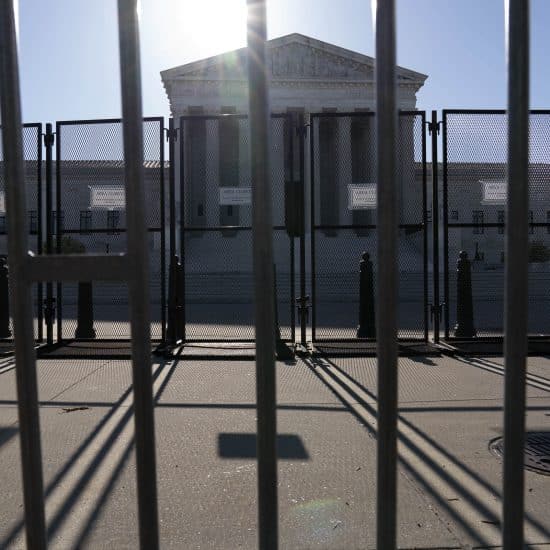Aid and advocacy create a positive witness for Baptists globally, leaders of the Baptist World Alliance noted.
When Raimundo Barreto, director of the BWA division of freedom and justice, was in Vietnam a couple of years ago, a government official initially was suspicious of him. Then the official spotted a copy of the BWA magazine describing what had been going on in Japan.

Passport's Colleen Burroughs, founder of a clean water ministry that serves Malawi, met with that nation'spresident Sept. 20 to talk about poverty initiatives. (Photo by David Burroughs)
|
“He was curious about that and asked about what we do, so I told him about all the humanitarian work that we do,” Barreto said. “And immediately he said, “If you do this work, you are welcome to come here.’”
Foreign governments often perceive Christians as people there just to proselytize, Barreto noted.
“But when we manage to show that we have a love for all human beings, that we have a commitment as members of the human family, and that’s part of our faith, to show that love and to work together for peace and justice, I think that also changes the whole picture.”
Baptists in the Middle East make an impact far bigger than their numbers through humanitarian work such as aid to Syrian refugees pouring into Lebanon, said Eron Henry, associate director of communications for the BWA.
“Sometimes when a disaster occurs, it is an opportunity for Baptists to demonstrate the compassion of Christ, and that has helped in some instances to bring Baptists to the awareness of the wider public,” Henry said.
The amount of assistance that BWA grants is not large in terms of dollars, but it makes a difference to the recipients. “Relief and development make a big difference in terms of the Baptist witness,” he said.
Religious liberty and human rights
So does concern for religious liberty and human rights, Barreto added. When it comes to advocacy, he said, “We do it not only for Christians but for anyone who is being victimized by an oppressive regime.”
He once met in Ukraine with Baptist leaders from the Central Asia countries of Turkmenistan, Uzbekistan, Azerbaijan and Tajikistan.
“They all face the same kind of problems — basically repression from the state,” he said.
“Usually, these states don’t recognize that they are oppressing a religious minority. They do this in the name of security. They use the same argument that we use sometimes here in this culture.”
Targeting what they call “extremism,” they set policies that oppress and violate the religious freedom of many groups.
“Who decides ‘what is extremist?’ is the problem,” he said.
Need for interfaith dialogue
Baptists need to engage in meaningful conversations with people of non-Christian religions, Barreto said.
“Sometime, some of our brothers and sisters have difficulty understanding: Why are we talking with Muslims? Why do we have this Baptist-Muslim relationship?” he said. “But that’s not the question when you talk with a Nigerian Baptist, because Christian-Muslim relations are in their daily lives.”
“Wherever I go, maybe because my portfolio is freedom and justice, I am dealing with minorities all the time,” he said. In one meeting, Baptists in Azerbaijan asked him to relay a message: “Please tell our brothers and sisters in the U.S. that when they say bad things about Islam or when they burn the Quran, we are affected here.”
It’s a message Barreto has heard not only there, but also in other predominantly Muslim countries. One way Baptists indirectly can help relations between Christians and those of other religions where Christians are a minority is to foster togetherness and harmony with other faiths in countries were Christians are the majority, he asserted.
Global importance of advocacy in U.S.
Baptists in America also help Baptists in other parts of the world when they advocate for peace, some BWA leaders noted.
Henry recalled a meeting in Slovokia, where a Baptist from the Middle East commented that Westerners, including Christians, think of the region fundamentally in terms of oil and the economy, while Muslims in the Middle East think primarily of religion. When Western Christians speak of the Middle East in those terms, it proves very unhelpful, he said.
People often are surprised to learn there are Baptists in Gaza and Palestine and that most Baptists in Israel are Arabs, “because Arab equals Muslims,” Henry said.
The BWA mediates conversations with governments in Central Asia not by beginning with reports of wrongdoing, but first by looking at their own policies for language that claims to be respectful for freedom and human rights for everyone, he explained.
“We try to work on that, their own words, and say, ‘That’s what you have said to the international community, so why are these problems occurring and how can we be helpful?’” he said. That helps foreign leaders “see us as people who want to help and not to create a problem.”
When Barreto told that to Baptist leaders in Azerbaijan, a question came up about U.N. resolutions condemning Armenia’s 20-year-old occupation of northern Azerbaijan.
“This is a Christian talking, saying that the silence of the international community about that and the fact that nothing has been done makes government like ours say, ‘Why should we listen to what the international community is saying if when they say something, they don’t follow up in countries that are mostly Christian?’
“So the way we deal with the world and be fair to everyone and be consistent when we relate to the international community, that is also a way to affect positively or negatively what is happening with Christians in different parts of the world,” said Barreto.
In many places, Barretto said, Baptists are looking to Christians in America to speak to the U.S. government and to society on their behalf, because the United States is so influential in global affairs.
“It is not only religion,” Barreto said. “The way we live and our values affect the lives of others who live in this global family. The global community is affected by our acts.”
Barreto recalled one conversation with a Baptist who said, “We heard that wonderful message from President Barack Obama in Cairo in 2009, and now you are not behaving according to that message, and that’s affecting our lives here as Christians.”
“When you pray for us, when you remember us, also advocate for us,” Barreto paraphrased. “Most of these Christians are living in countries with a lot of restrictions in terms of their freedom of religion.
“A priority on religious freedom, a priority on human rights, human dignity, in foreign policies on the part of the U.S. is important for them.”


